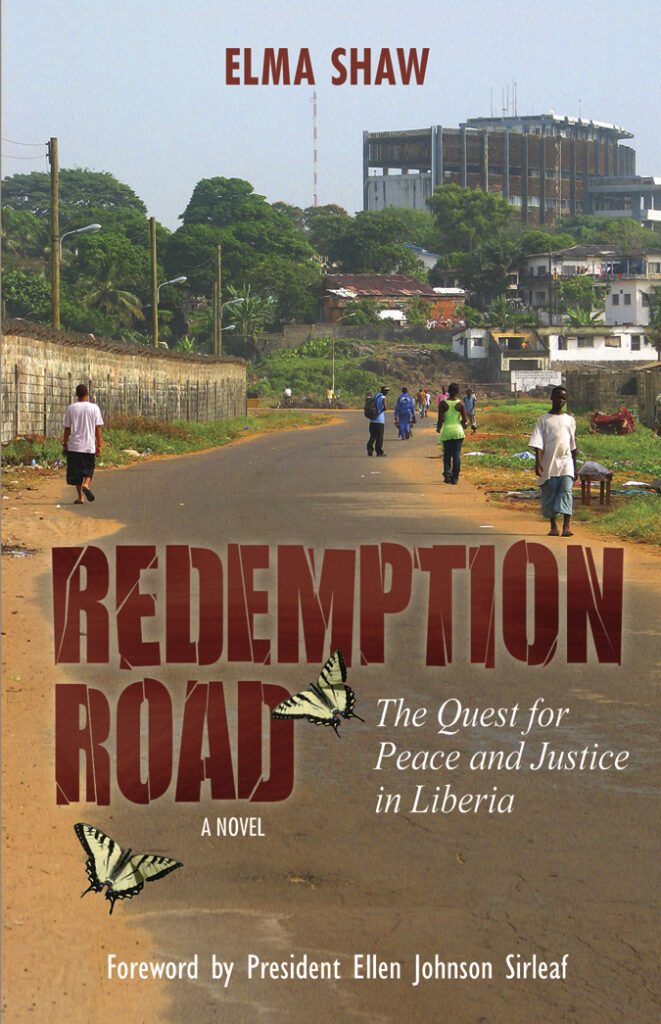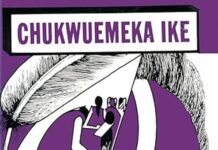📢 Follow our WhatsApp Channel for the latest literary updates!
Redemption Road by Elma Shaw discusses themes such as resilience, loss and grief, justice, post-war trauma, redemption, corruption, and dehumanisation of war. These themes are integral to the overall development of Elma Shaw’s novel.
In this blog post, we are going to discuss some of the themes in Elma Shaw’s Redemption Road.
Theme of Resilience
The theme of resilience is one of the dominant themes in Redemption Road. It manifests in a number of ways in the novel. One manifestation is evident in Bendu’s unwavering commitment to stay with her sick grandmother, Catherine May Tyler, during the chaos of the war. She refuses to leave her grandmother’s side even when she is urged to do so for her own safety.
Bendu’s resilience is further reinforced by her decision to help war-affected women through her NGO, Peace in Practice. She is beset with her own traumas too but that does not stop her from helping other survivors of the war. Even when she has to struggle to get funds for her humanitarian efforts, she remains committed to her work and maintains a positive outlook. She actively engages in counselling sessions, shares her own experiences, and offers support and guidance to others facing difficulties.
Bendu demonstrates the theme of resilience yet again through her refusal to drop charges against Varney, even after undergoing a near-death experience in the hands of Varney at a deserted beach, and she is advised to do so for her own sake. She remains steadfast in her pursuit of what she believes is right, come what may.
Similarly, resilience is portrayed through the character of Tenneh. Her revelation of her HIV-positive status depicts her resilience in confronting stigma and fear. Despite her concerns about rejection and harm, Tenneh bravely shares her story and expresses a desire to help others by raising awareness about HIV/AIDS. Her willingness to confront challenges head-on and seek support from her community reflects a resilient spirit that refuses to be defined by circumstances.
Theme of Loss and Grief
The theme of loss and grief permeates Elma Shaw’s Redemption Road. The author projects how some of the characters grapple with their losses. Rosetta is one character in the text who grapples with the loss of a loved one. She is embittered that her husband was murdered on tribal grounds. Her bitterness no doubt says something about the fact that she is still mourning the loss of her husband, which explains why she hasn’t let go of the hate she harbours against the killers of her husband.

The theme of loss and grief is also demonstrated through the character of Eva Lewis who lost her son, Benji, to the 1980 coup d’etat. It is clearly shown in the novel she hasn’t gotten over the loss of her child, which is why she goes to his grave every April to commemorate the death of her son. Bendu, Calvin, Eva, and Siatta all mourn Benji in their different ways.
The main character, Bendu, is not left out of this web of loss. She still mourns the death of her fiancée, Jonah, who suddenly died some months before their wedding. This loss complicates her love life, as she can’t seem to entertain the thoughts of being in a serious romantic relationship with another man.
For what seems a fleeting moment in the novel, Bendu mourns the fate of her daughter, whom she only knows as “Baby Girl,” and had abandoned at the Duluma camp several years back. Even as the search for her daughter intensifies, this grief lingers. She is particularly worried about what has become of her daughter; whether she is dead or still alive.
Several other characters suffered loss one way or the other. Ma Musu’s husband was killed by soldiers; her sons were taken away; and her sister died of Cholera. The whole gamut of loss extends to Commander Cobra, who lost his both parents as a child to motor accident.
Besides, the novel begins with the commemoration of Granny May’s death. Of all the family and friends present at the burial ceremony, Bendu is the most affected because only she is privy to how horrible her grandmother’s death was. The others have not the least idea, except that they know that Granny May’s body wasn’t found, which is why they have to represent it with precious items that could as well do for it. There is a lingering sense of loss and grief all through the first chapter of the novel.
Theme of Justice
Redemption Road explores the concept of justice and the lack thereof in society. Starting with Varney, he is determined to confront societal injustices and initiates meaningful action. He laments the lack of justice in a society where peace is prioritised over equity. He believes that there is an inherent connection between justice and lasting peace. Justice is needed to achieve true peace. It is, however, ironic that the same Varney would object to Bendu’s pursuit of justice.
The theme of justice also manifests in Bendu’s determination to prosecute Commander Cobra for his war crimes, especially in the face of recurring nightmares where the guy she seeks to prosecute is the villain. This drives much of the narrative.
Besides, Bendu’s perception of justice is different from Calvin’s or Varney’s. Bendu, in her pursuit of justice against Varney, believes in involving the police and following proper legal channels. She adheres to due process and holds onto the hope that the authorities will bring Varney to justice. But Calvin’s approach to justice is very different. Contrary to Bendu’s insistence on legal recourse, he has inclination towards vigilante justice which allows him to handle matters himself and take laws into his hands. As for Varney, his own idea of justice in the novel involves the bribing of judges to get his way and infiltrating the system with people that will do his bidding.
Another angle to the theme of justice is that it is at first Bendu’s way of seeking closure from her past trauma. She believes that by holding Commander Cobra accountable for his heinous crimes during the war and the role he played in the ruination of her life, she will get redemption. However, after the death of Commander Cobra, she begins to regret not forgiving him, instead of pressing charges against him during his lifetime.

Theme of Corruption
Corruption is one of the central themes in Redemption Road. In the text, we witness the pervasive corruption in the justice system. Judge Dagoseh epitomises this corruption. He accepts bribes from Moses Varney in order to do his bidding and provide him with immunity from the law. Justice now becomes more of he who pays the piper dictates the tune. In other words, Dagoseh is used to perpetuate a system that oppresses the people.
Varney’s informants placed within the police system also add to the overriding corruption in the text. They not only subvert the system but also alter the course of justice. A good example of this is when he receives a call from one of his comrades within the system that he is being followed. This, and the subsequent call from his boss, simply identified as Chief, allow him to escape being arrested.
Premium PDF
There are 988 words left in this article and a total of 26,272 words in our premium PDF, which include the themes of post-war trauma, redemption, and dehumanisation of war. Download the entire Redemption Road study guide as a printable PDF now!

Further Reading:
Join Our Social Media Channels:
- WhatsApp: Literature PADI
- Telegram: Literature PADI
- YouTube: @literaturepadi
- Facebook: Literature PADI












This is very useful. Thank you.
BUT IT WOULD HAVE COME EARLIER THAN NOW.
Very good
I loved it very much
Thank you for this
Good
Interesting
I can’t find the theme of forgiveness
Check the penultimate paragraph under the theme of redemption.
I can’t find thene of forgiveness, trauma self discovery I need it for my exams
❤️❤️❤️❤️❤️❤️👍👍👍🥺❤️❤️💖💖💖💖💖💖💖💖💖💖💗💗💗💗💗💓💓💓💓💓💓💓🥰🥰😍😍😍😍🤩🥺🥺🥱🥺🥺🥱🥺
Was checking on language and style for these novel.